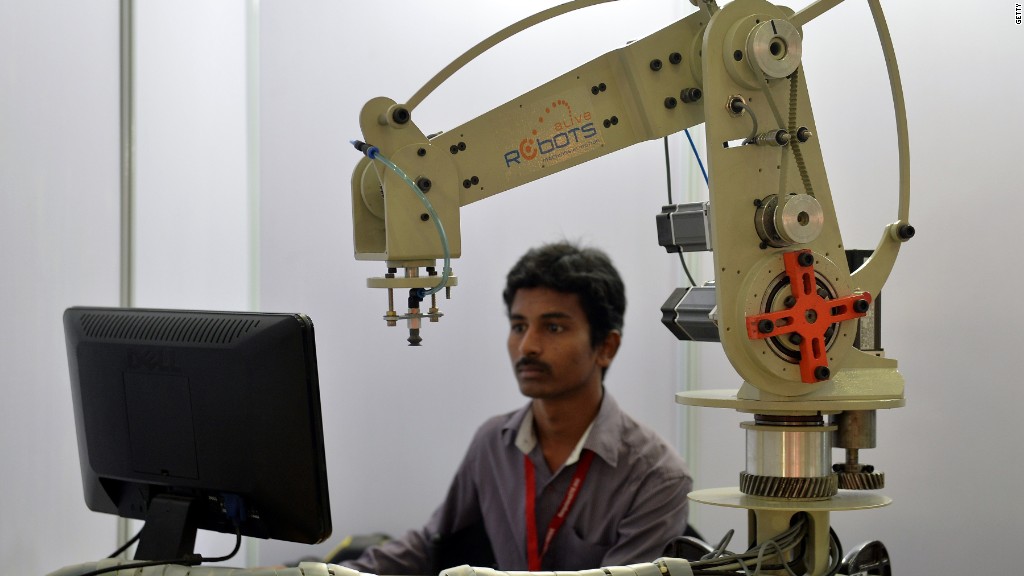
Mark Zuckerberg defended his controversial plan to expand Internet access in India on Wednesday, saying that bringing people online is a moral obligation.
The Facebook CEO has faced withering criticism in India over Internet.org, which offers a free, stripped-down version of the Internet to consumers who cannot afford a broadband connection or smartphone data plan.
The service, backed by Facebook (FB), provides information on health, travel, jobs and local government. The service keeps costs low by transmitting as little data as possible, while offering only a limited number of apps.
"If you have a student who is getting free access to the Internet to help do her homework, and she wouldn't have had access otherwise, who's getting hurt there?" Zuckerberg asked university students in New Delhi.
Critics contend that Internet.org violates the central tenets of net neutrality, which stipulates that all content and users should be treated equally. Instead of just a few services, they ask, why can't Facebook offer access to the entire Internet?
"What Zuckerberg means by Internet for all, is essentially Facebook for all, along with a few non-profit services thrown in to give it the appearance of philanthropy," argued Nikhil Pahwa, the editor of Indian news site MediaNama, in a blog post.
Related: Net neutrality explained, once & for all
Zuckerberg said that Internet infrastructure is very expensive to build, and offering unlimited access for free is unrealistic. He also said that while Facebook (FB) supports net neutrality, it has a moral obligation to expand Internet access in poverty-stricken areas.
Which policy is right for India? The country has one of the world's top tech scenes, where highly-educated engineers churn out cutting-edge apps. At the same time, hundreds of millions of Indians don't have access to the Internet, even on a basic phone.
"Most of the folks that are pushing for net neutrality have access to the Internet already," Zuckerberg said. "But the people who are not yet on the Internet can't sign an online petition pushing for increased access to the Internet."
Related: Web founder disses Europe's new Internet rules
Zuckerberg said that Internet.org, which was recently renamed "Free Basics," has brought 1 million Indians online to date. The statistics, however, are unlikely to sway critics.
"Our responsibility is to ensure that people who don't have access to the Internet, get access to the whole Internet," Pahwa countered on Twitter.
Zuckerberg has defenders in India, too.
"The elite Indian condemnation of Internet for the poor is cloaked in righteous objections," the novelist Manu Joseph wrote recently in The New York Times. "In fact, it is paid Internet that is restrictive because it denies the web to those who cannot pay."

